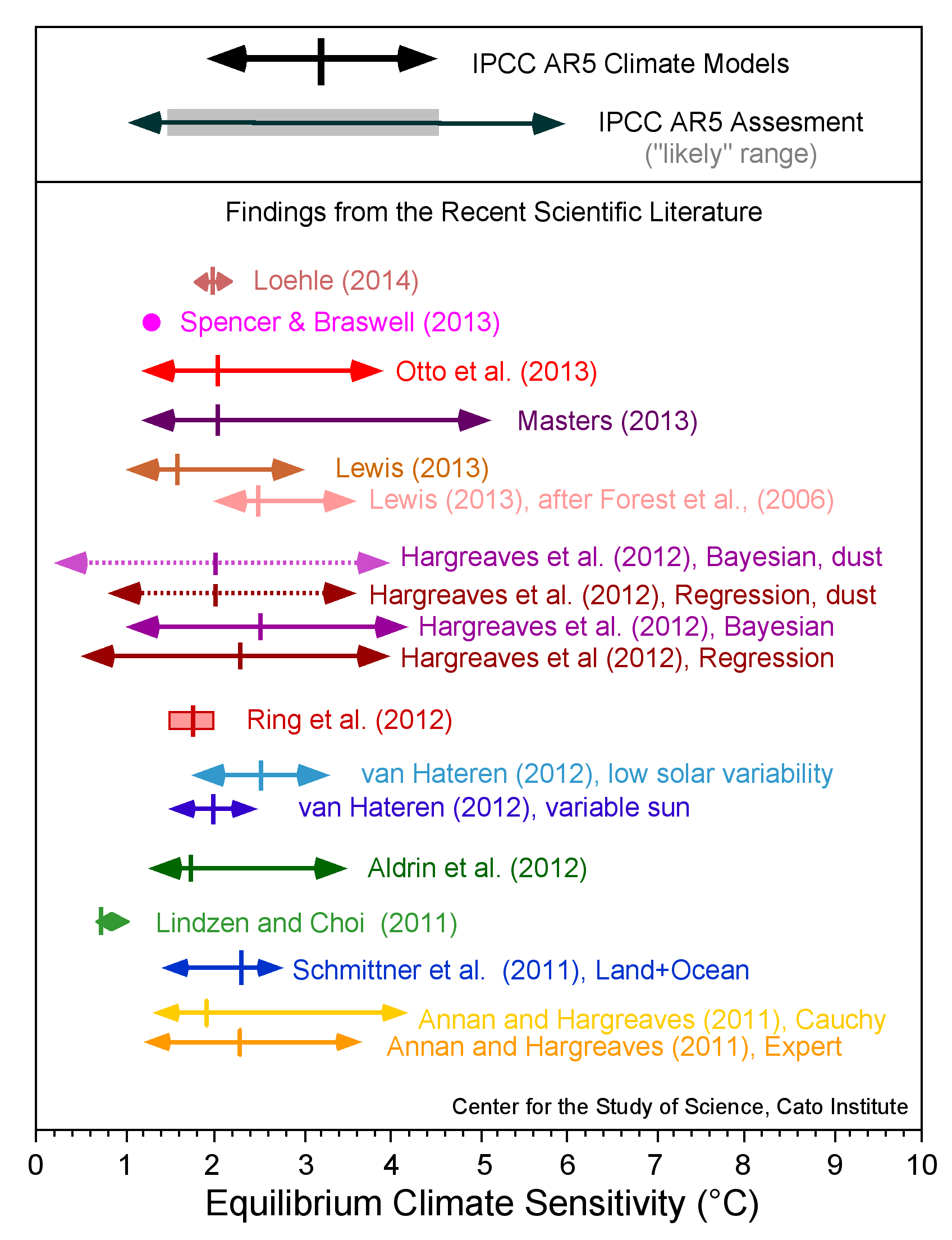Climate Change 4: Recent Research on Climate Sensitivity Favors Lukewarmers

A terrific new book out by climate scientists Patrick Michaels and Paul Knappenberger exposes the “pseudoscience” that the “the debate is over” crowd relies on for their alarmist dictates. That crowd is big and powerful, but nowhere near 97% of climate scientists (or anybody else) endorse the impoverishing policies that will change our climate in ways that won’t even be measurable 75 years from now.
The book, Lukewarming: The New Climate Science that Changes Everything, acknowledges that climate change is real and partially man-made, but shows that the mild, gradual warming we are experiencing doesn’t come close to the catastrophic levels predicted by the model estimates used by the UN’s Intergovernmental Panel on Climate Change (IPCC).
The biggest issue in the warming debate is climate sensitivity, namely how much will the earth warm from a doubling of CO2 in the atmosphere. The most recent 2013 IPCC 5th Assessment Report said climate sensitivity was likely in the 1.5-4.5°C range. But the big news, usually ignored by the climate debate gatekeepers, is that since 2011 an increasing number of papers are showing the sensitivity to be on the low end of that range, as summarized in the graphic.
There are many other low-sensitivity papers. Many (but not all) are incorporated into [the graphic.] Perhaps the most interesting among them is a 2013 analysis by Alexander Otto and a host of colleagues. Fifteen of the 17 also were lead authors in preparing the 2013 IPCC report. In other words, the 15 coauthors are the very people who largely are responsible for writing that chapter.
Otto (who is at the University of Oxford) and his coauthors acknowledge both the pause in temperature rise and the uptake of heat by the ocean. They note that these imply a lower sensitivity than has been found in previous models. Using more precise radiation data collected over recent years, they calculate a 5-95 percent confidence range of 1.2-3.9C and a mean sensitivity that is more than 40 percent less than the average characterized in the 2013 IPCC report. Yet, somehow, the paradigm of dramatic warming remains intact.
This prompts a serious question: if so many of the scientists who are credited alongside Otto in this research also are the authors of the IPCC report, how on our getting-greener Earth could that report still contain the higher sensitivity unless the IPCC leadership is wed to a predetermined result?
Peter Zeller is Director of Operations at Center of the American Experiment.